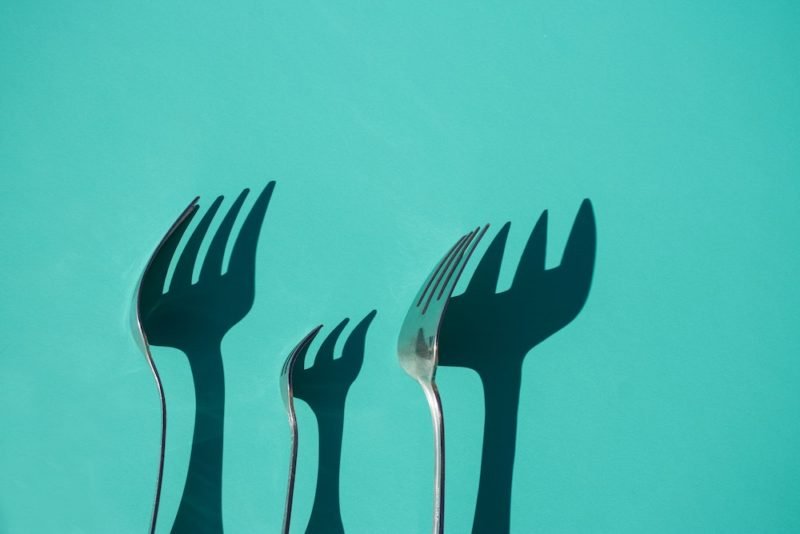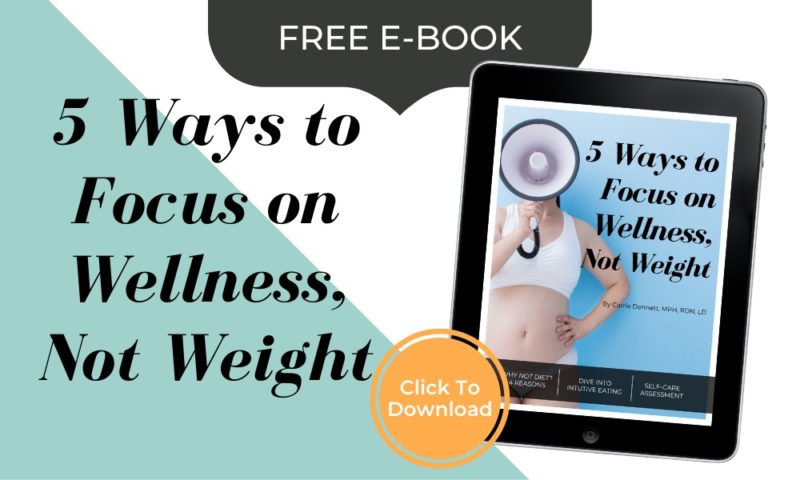
I had a very different post planned for today, so hold onto your hats. (I’ve been reading Lindy West’s “The Witches are Coming” and Sabrina String’s “Fearing the Black Body,” so I’m feeling a little extra feisty.) Over the weekend, this headline popped up in my inbox: “Half of Us Face Obesity, Dire Predictions Show.”
“Oh, hell, no,” I thought as I clicked the link, which took me to the latest article from New York Times writer Jane Brody, who has been the paper’s personal health columnist since the 1970s. I credit her book, “Jane Brody’s Good Food Book: Living the High-Carbohydrate Way” with helping to feed my chronic dieting and profound fear of dietary fat back in the early 90’s, but props to her for talking about sorghum, triticale and amaranth way back in 1985 (when the book was published).

Dehumanize yourself
But I digress. As I started to read the article, the bias and stigma fairly shimmered off my computer screen. Words like the aforementioned “dire” joined “terrifying,” “fatal” and “potentially disastrous” painted a frightening picture, indeed.
Brody likened the threat posed by “expanding waistlines” to that of climate change, and said our country wasn’t doing enough to stop either. Soda taxes just aren’t enough! We need nationwide changes in the food environment that has “fostered a steady climb towards a weight and health disaster.” (!)
She makes the classic error — whether willfully or not — of conflating correlation (in this case, correlations between increased weight and increased risk of chronic disease) and causation. Almost every single article like this has a line like “Given the role obesity plays in fostering many chronic, disabling and often fatal diseases.” This assumes we know that “obesity” has a causal role, and dismisses research showing that weight stigma increases the risk of poor health regardless of someone’s actual body weight, and that yo-yo dieting (or weight cycling) is also associated with poor health. So maybe it’s not all about the weight, but about the other things that happen when someone is in a larger body.
Brody’s primary source for the article is a Harvard PhD candidate who has a background in epidemiology, computational science and engineering. He appears to have significant experience in creating microsimulation models — computerized analytic tools that try to predict how broad scale changes might affect individual behaviors and outcomes. So, no clinical experience working with people in higher-weight bodies (unless I’m missing something).
While there is value in statistical models, they — like this article — ignore the fact that human beings are not numbers or statistics. Yet this article was written to be read by everyday people, not scientists and statisticians at a conference. That makes this article blatantly stigmatizing, dehumanizing, and deeply offensive.

Recycled weight stigma rhetoric
The article rails on sugar-sweetened beverages, highly processed foods, excessive snacking and having fast food delivered to your door — but only in the context of their potential contribution to weight gain. In excess, these foods and food behaviors could contribute to poor nutrition and possibly poor health in anyone of any size, so why isn’t that of equal concern?
I honestly see no reason why this article needed to be written. What was Brody (and The New York Times) trying to achieve? There was nothing particularly new here, so all it did was check off a number of boxes that have been needlessly checked off a million times before:
- Newly released study proclaiming dire consequences of the “obesity epidemic.” Check.
- Researchers who see humans as statistics to be manipulated. Check.
- Railing against the modern food environment. Check.
- Implying that a less-than-healthful food environment is only a problem if it causes people to gain weight. Check.
- Ignoring that many factors, including socioeconomic status and access to healthcare, impact health. Check
With nothing of substance to offer, this article served no purpose other than to further the weight bias that is rampant in the media. From my own perspective as a journalist, I am pitched so many article ideas from research institutions that have no business seeing the light of day in a publication read by everyday people. Maybe the research is interesting, but too preliminary. Or, when I look at the research and ask myself, “Can and should my readers actually take action based on the results of the study?” and the answer is “no,” I take a pass. In spite of that, I have written a few articles that I somewhat regret, but I try.

Taking away personal choice…for what?
Also alarming was this paragraph:
“Another policy-based approach that could reverse rising obesity projections might be to partner with climate control advocates, Dr. Bleich suggested. ‘If we pull more meat out of the American diet, it would help both the environment and weight loss,’ she said.”
Why alarming? First, because it’s trying to force a specific dietary pattern on the public. I am fully on board with the benefits of eating less meat and more plants, for both a health and environmental perspective. I’m not on board with taking away people’s autonomy, nor am I on board with the perpetuation of the idea that the solution to climate change rests on our forks, not when 100 companies are responsible for 70 percent of greenhouse gas emissions, and on an individual level there are choices we can make that would have a bigger impact than our food choices.
It’s amazing to me that one publication (or perhaps one editor) can have the wisdom to ask Christy Harrison to write for them (here, here and here) yet continue with hurtful, harmful stigmatizing rhetoric. I love the New York Times, but in this case, they’ve really disappointed me.
Disclaimer: All information provided here is of a general nature and is furnished only for educational purposes. This information is not to be taken as medical or other health advice pertaining to an individual’s specific health or medical condition. You agree that the use of this information is at your own risk.
Hi, I’m Carrie Dennett, MPH, RDN, a weight-inclusive registered dietitian, nutrition therapist and body image counselor. I offer compassionate, individualized care for adults of all ages, shapes, sizes and genders who want to break free from eating disorders, disordered eating or chronic dieting. If you need to learn how to manage IBS symptoms with food, or improve your nutrition and lifestyle habits to help manage a current health concern or simply support your overall health and well-being, I help people with that, too.
Need 1-on-1 help for your nutrition, eating, or body image concerns? Schedule a free 20-minute Discovery Call to talk about how I can help you and explore if we’re a good fit! I’m in-network with Regence BCBS, FirstChoice Health and Providence Health Plan, and can bill Blue Cross and/or Blue Shield insurances in many states. If I don’t take your insurance, I can help you seek reimbursement on your own. To learn more, explore my insurance and services areas page.
 Print This Post
Print This Post







